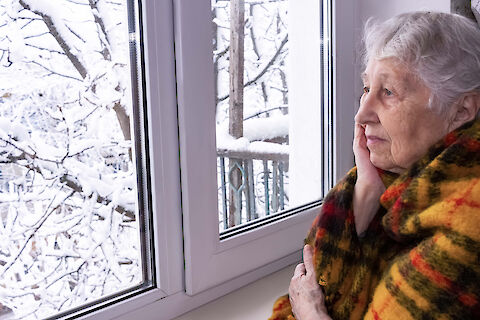
Seasonal Affective Disorder, commonly known as SAD, is a type of depression that is associated with the changing of the seasons. This condition can range from mild to severe. It can deeply impact a person's quality of life, particularly as they age. It's essential for seniors and those who care for them to understand this disorder, as it can manifest differently in seniors.
Understanding SAD
Seasonal Affective Disorder, or SAD, is a type of depression that comes and goes with the seasons. It typically starts in late fall or early winter and disappears during the spring and summer. The most common symptoms of SAD include feelings of depression nearly every day, low energy, difficulty sleeping, changes in appetite or weight, and feelings of hopelessness.
Impact of SAD on Seniors
SAD can be particularly challenging for seniors as they are often more isolated, with fewer opportunities for social light exposure, especially during the winter months. The symptoms can mimic those of classic depression or even be mistaken for signs of dementia. Reduced sunlight can disrupt the body's internal clock, leading to feelings of depression. It can also disrupt the balance of serotonin, a neurotransmitter affecting mood, and melatonin, which impacts sleep patterns and mood.
Coping Strategies for Seasonal Affective Disorder
There are several strategies to manage SAD effectively. These include:
Light Therapy
Light therapy involves sitting a few feet from a special light therapy box to expose yourself to bright light. This mimics outdoor light and is believed to affect brain chemicals linked to mood. This is often the first line of treatment for seniors with SAD.
Cognitive-Behavioral Therapy (CBT)
CBT is another useful strategy. CBT for SAD involves working with a mental health counselor to learn how to manage stress and reduce symptoms of SAD by identifying and changing negative thoughts and behaviors.
Medications
Medication can also play a role in managing SAD. Certain antidepressants can be effective in relieving SAD symptoms. It is crucial to consult with a healthcare provider to discuss potential benefits and risks.
Lifestyle Changes
Apart from the above, adopting natural ways like maintaining a daily exercise routine and a balanced diet can go a long way in managing SAD. Staying connected with loved ones and engaging in activities you enjoy can also help lessen feelings of loneliness and isolation.
Importance of Seeking Professional Help
If you or a loved one are experiencing severe or persistent symptoms of SAD, seek professional help. It can be challenging to diagnose SAD, as other types of depression or even physical health problems can cause similar symptoms. Therefore, getting a comprehensive evaluation from a healthcare professional is vital. Early intervention and treatment can significantly improve the quality of life.
Senior Helpers Frederick Supports Seniors Struggling With SAD
Understanding and addressing SAD in seniors is critical. If you are in Frederick, Hagerstown, Thurmont, or Middletown and need assistance in managing SAD for yourself or senior loved ones, Senior Helpers Frederick is here to help. Please feel free to reach out for professional help. Remember, with the right assistance and coping strategies, SAD can be managed effectively, and a joyful life can be maintained, irrespective of the season.